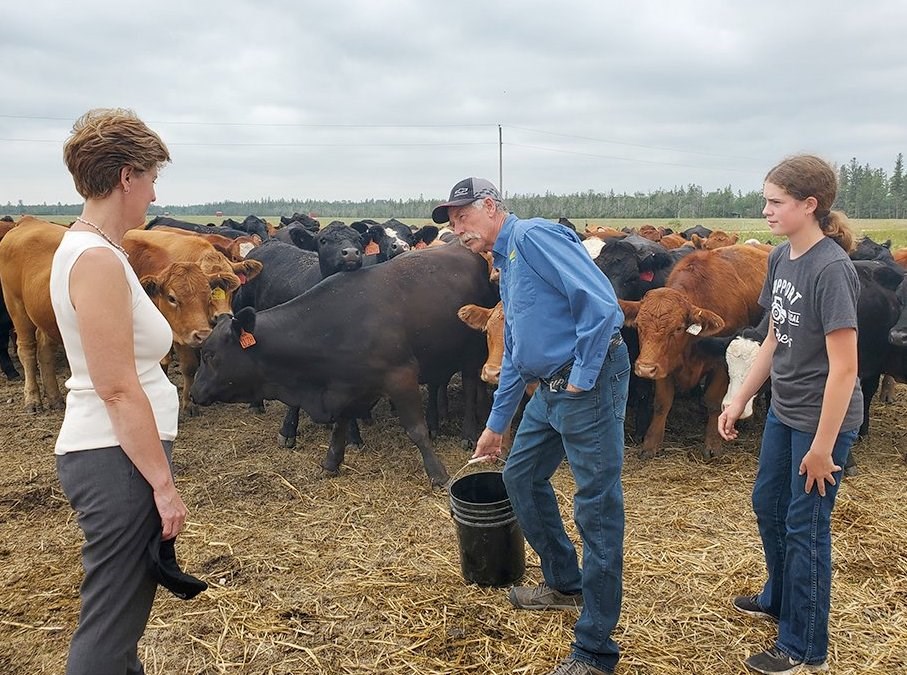As the federal government looks to manage impacts of ongoing drought conditions – which could be a once-in-a-century event this summer across the Prairies - livestock producers in all western provinces are now eligible for a tax deferral program.
Minister of Agriculture Marie Claude Bibeau announced July 27 that producers in British Columbia, Alberta, Saskatchewan, Manitoba and Ontario would be eligible for support.
“At times like this we need to reach out to each other, we need to find a helping hand and a sympathetic ear. We all need to pull together, neighbours helping neighbours, showing the true strength and solidarity of our communities,” said Bibeau at a Winnipeg press conference that followed a tour of a farm in the area.
Bibeau also said she hoped the climate disaster will prompt provinces to accept her long-standing offer to make changes to AgriStability. Ottawa has offered to increase the compensation rate offered to producers to 80 percent (from 70 per cent), which would add “$75 million nationally into the pockets of farmers who need it the most.”
The livestock tax deferral is being set up to allow beef producers forced to sell a significant amount of their breeding herd to offset revenues with costs to replace the herd.
The program “will allow affected producers in these regions to defer a portion of their 2021 income from sales to next year,” according to Bibeau.
“This will help them manage costs this year, and reduce the tax burden next year,” she said.
The Canadian Cattlemen’s Association had previously called for the “immediate” implementation of a tax deferral program for its members, many of whom praised Bibeau following the announcement.
Bibeau is also trying to adjust the AgriInsurance program so that drought-damaged crops can be made available for feed. The change is designed to increase the amount of crops available for livestock producers, and Bibeau is working with the provinces to allow for this to happen.
British Columbia, Alberta, Saskatchewan, Manitoba and Ontario have requested AgriRecovery programs be put in place to alleviate the drought damage.
The program is designed to offer disaster-specific relief “in situations where producers do not have the capacity to cover the extraordinary costs, even with the assistance available from other programs.”
Ottawa is working with those provincial governments to provide appropriate support, which could include direct assistance to producers for added livestock feed costs, transportation and water infrastructure.
“We are working around the clock to turn those around as quickly as possible to help farmers with the extraordinary cost,” Bibeau said.
The trip to Winnipeg is arguably the most significant travel undertaken by the Quebec-based minister since the pandemic began.
After receiving an invitation from Manitoba farmer she decided to witness the devastation herself.
“I speak for Prime Minister Justin Trudeau and myself when I say to all producers affected by the disaster, we have your back,” she said. “We will do all we can to help you get back on your feet, and once again producing the best food in the world.”



